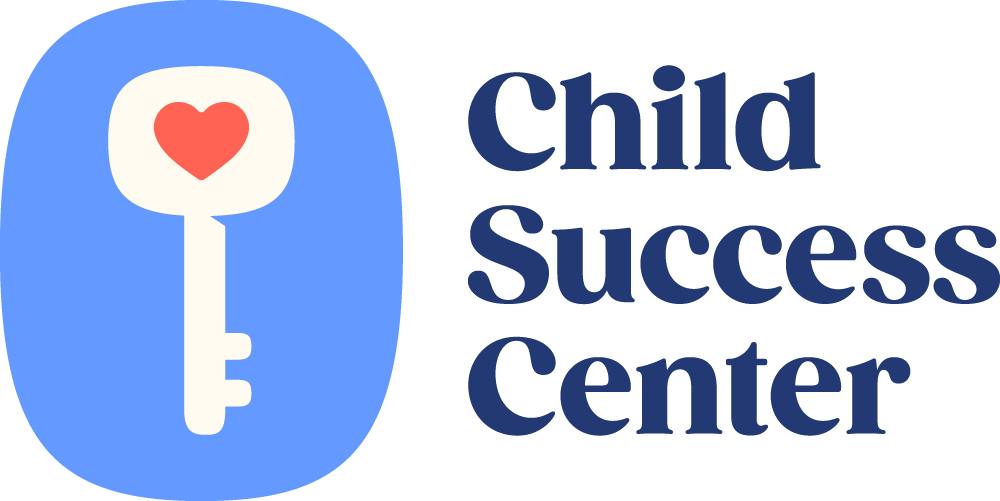Is Your Child "ready" for Kindergarten?
You have a child in kindergarten and it’s time for the first round of parent teacher conferences.
Do you feel excited to hear about how your child is doing at school or are you a bit nervous? Are you ready to guide your child’s learning experiences this year along with their teachers?
This year I am both a parent of a kindergartner and the Director of a development and learning center. For myself and all the other parents, September was a long month filled with first days of school, back to school nights, challenges with what to pack for lunch so your child will eat, early mornings and building of new friendships. It is also the time that many schools schedule parent teacher meetings to begin the process of sharing and gathering information about your child.
I recently had my conference and I will tell you that if we had sent our son to kindergarten last year it would have been a very different conversation. My son is a May birthday and a year ago, even with a play based, multi-sensory approach to learning that he had been exposed to at Child Success Center in the “Get set for Kindergarten” program and through his school, he was just entering the very beginning stages of interest, desire and ability to understand the 2 dimensional written world of letters, words and print. At 5.4 years of age last September he was a sweet, sensitive child whose brain was not ready for kindergarten in some ways and very ready in others. He, at that time, was struggling to write his name and draw. His peers were already doing that and showing interest in letters. My son was building the San Pedro harbor out of blocks and the Eifel Tower out of Magna Tiles. Some would say that is fine. While there is nothing wrong with that he wasn’t gravitating towards play based activities that would help him build foundational learning processes for reading and writing. Such activities encompass a large part of a child’s school day and include rhyming, identifying differences in the sounds that letters make, matching a sound and symbol, identifying the name of letters and beginning to write them, drawing and controlling the pencil. At that time, my son wasn’t quite ready.
Over the past year we chose to enroll him in a developmental Kindergarten program at Circle of Children and he participated in a weekly kindergarten readiness class followed by a Kindergarten readiness camp over the summer at Child Success Center. He loved all of his experiences as they were presented in a play based approach and provided him with just the right challenge to learning.
So back to the teacher conference… I was able to walk away feeling happy and calm that my son is now ready to learn, excited to learn, has the foundation to learn and the capacity to learn. Most of all, he sees learning as fun. He sees himself as a reader and loves to handwrite. As an Occupational therapist and his mother I am very proud of his beautiful dynamic pencil grasp!!
Moving from a 3D world of playing with Magna tiles to the 2D world of reading and writing is not easy for many children.
We know that the Center for Disease Control states that 16.7% of children have a diagnosed learning and/or developmental challenge and we also know that many children struggle with undiagnosed challenges. Many behaviors such as being impulsive, aggressive, controlling, avoidant, shy, silly, disinterested, immature or having a short attention span, are really a child struggling with the processing capacity to do the activity that is being asked of them. They may be having a hard time taking in the information from their environment, making sense of it quickly and efficiently and producing the desired or required successful response. Many children excel in their natural ability to remember what they see or hear and many struggle with attention, memory, visual and or auditory processing and sensory motor processing. It is time to look at behavior through a different lens and promote early detection and support for our children.
All human beings have a brain that processes some information easily and other information not so easily. Is your child a visual leaner or an auditory learner? Does he seem to learn better if he is moving? The human brain processes uniquely and we need to strive to understand our children’s natural capacities to learn. Some children will require extra support along the way. This is where individualized and specific help from trained learning specialists such as occupational therapists, speech and language therapists and educational therapists can prove to be beneficial. We as parents need to read the signs and be open to exposing our children to the teaching methodologies that will support their inherent desire to learn, setting them up for a positive relationship with learning.
Is your child ready for Kindergarten? Is he/she exhibiting behaviors that are troubling and disruptive? Early intervention begins with a proper assessment. For more information on the assessment, therapeutic and Kindergarten Readiness programs offered by Child Success Center, please click here.
Some things to look for in the “Kindergarten-ready” child:
- Follows words left to right and top to bottom
- Understands that words are separated by spaces in print
- Recognizes and can name all upper and lower case letters of alphabet
- Demonstrates basic knowledge of letter sound correspondence by producing primary sound made by most consonants
- Holds a pencil with an adult grasp – 3 fingers with control of the pencil from the fingers

